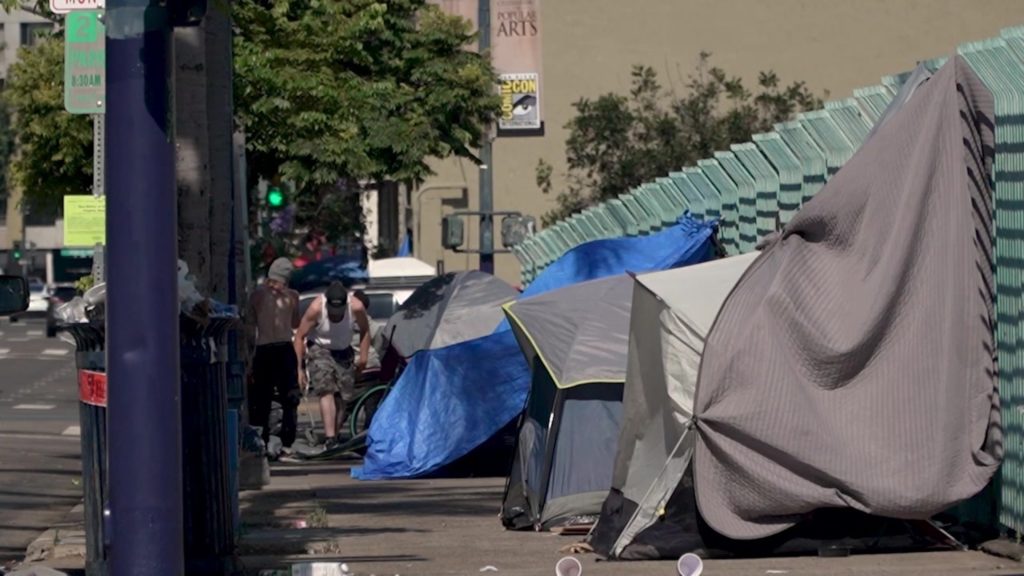Stephanie Shi:
New legislation facilitates court orders of behavioral treatment plans for individuals with severe mental illness through the so-called CARE courts.
Here’s how it works: A family member, behavioral health provider, or member of law enforcement files a complaint in court on behalf of a person with untreated schizophrenia or other psychotic disorder. The court can then order a clinical evaluation and the creation of a care plan that includes treatment, medication and housing.
Failure to complete treatment may result in longer-term national surveillance. This approach is part of California’s efforts to tackle the homeless problem. San Diego is one of the pilot counties that will begin rolling out CARE courts this fall.
On this hot July day, police cleared a downtown sidewalk encampment. It’s a common sight in the Golden State, where nearly a quarter of homeless residents are estimated to suffer from severe mental illness.
Chronic homelessness is the result of multiple system failures, not just individual choices. Mental illness cycles through the public health system, the housing system, and the criminal justice system. They may find help along the way, but many of them end up back on the streets.
Anita Fisher knows this all too well.

